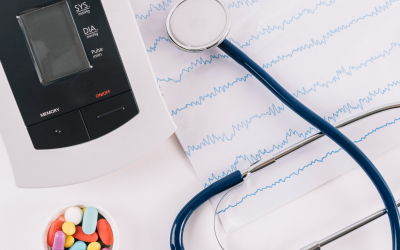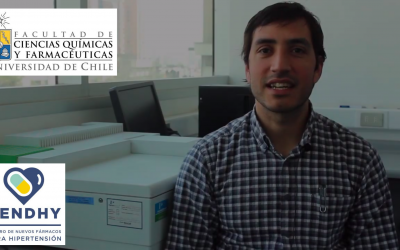The coronavirus causing COVID-19 is currently a public health emergency that has evolved rapidly in many parts of the world, being defined by the World Health Organization (WHO) as a pandemic that affects patients with chronic diseases and the elderly with greater consequences.
According to an exploratory analysis conducted in China, Chinese Center for Disease Control and Prevention , showed that 32% of patients suffered from a chronic disease, the most common being diabetes with 20%. At the same time, it also revealed that the case fatality rate in people with cardiovascular diseases is 10.5%; in diabetes 7.3% and 6.3% in chronic respiratory disease.
In this sense, the Advanced Center for Chronic Diseases ACCDIS, brought together scientists from the University of Chile and the Pontifical Catholic University of Chile, to report on the extra-care measures that people suffering from cardiovascular diseases, diabetes and cancer should have.
“Patients suffering from some chronic disease, mainly diabetes, hypertension and certain respiratory diseases, have the same probabilities of getting the virus as a healthy person, the big difference is the severity with which it will impact them”, said Dr. Valentina Parra, Assistant Professor, Faculty of Chemical and Pharmaceutical Sciences, ACCDiS Researcher.
Who also made a preventive call, not only to COVID-19 but to any type of infection, taking into account that patients with chronic conditions have a weakened immune system and are prone to receive another type of virus. “Currently the Ministry of Health is programming house-to-house vaccination days against influenza, for those patients with critical chronic diseases, pregnant women and children”, said Dr. Valentina Parra, who also emphasized that this group of people should be vigilant. to the official information.
On the other hand, she reported that hygienic prevention measures are the same announced by the World Health Organization. However, this group of people must comply more accurately with the general recommendations: social isolation and in case of being infected by the virus have a separate room and maintain a distance of up to two meters from other people, deep hand hygiene, avoid touching your eyes, nose and mouth, continuity of treatments for each disease and vaccinate against influenza.
Patients with heart conditions
A study published in March in the journal Springer Nature on 150 coronavirus patients in Wuhan revealed that cases with cardiovascular diseases have an increased risk of mortality. However, the American College of Cardiology says they are still unclear about the specific effects of COVID-19 on the cardiovascular system.
On the other hand, Dr. Jorge E. Jalil , cardiologist specialized in Internal Medicine at the Pontifical Catholical University of Chile and principal investigator at CENDHY (Center of New Drugs for Hypertension) refers to the importance of prescription adherence: “In relation to hypertensive patients who are currently under treatment with antihypertensive drugs, the recommendation is to continue with the usual drugs: Losartan, Valsartan, Candesartan and Olmesrtan, as well as Enalapril, Lisinopril and Captopril.”
“There are no clinical evidences to advise a modification or a suspension of these drugs in hypertensive patients against the transmission of COVID-19. This indication is shared by various international scientific societies dedicated to high blood pressure, including the European Society of Hypertension, the Hypertension Council of the European Society of Cardiology, the Spanish Society of Hypertension, the Association American Heart Association, the United States Heart Failure Society and others”, Dr. Jorge Jalil concluded.
People with diabetes
As of the COVID-19 outbreak, the American Diabetes Association confirmed “the problem faced by people with diabetes is primarily a worse outcome, not a greater chance of contracting the virus”.
Mario Chiong, biochemist and expert in type II diabetes at the University of Chile, assures that for these patients the main preventive measure is social isolation, for this it is important to have the telephone numbers of their medical team and the necessary amount of supplies, both medication and blood glucose monitoring. In addition, it is necessary to stay hydrated, frequently monitor blood sugar and follow the recommendations of the health authorities.
People with cancer
Andrew Quest, Principal Investigator of ACCDIS and doctor of Biomedical Sciences, explained that people with cancer and those who are currently receiving treatments often have weakened immune systems, therefore, they should avoid being exposed to people infected with any type of virus. Taking greater caution with those who suffer symptoms of respiratory infection such as: fever, cough, generalized muscle pain, sore throat or respiratory distress, also recommends not sharing personal belongings.
In general, the doctor calls for extreme care to this type of patient, taking into account the WHO’s general preventive measures.
Finally, the scientists confirm the official announcement “there is no recommended antiviral treatment for COVID-19.” The call as the Advanced Center for Chronic Diseases is to remain calm and abide by the recommendations of national and international health authorities.
Article published in https://www.eleconomistaamerica.cl/actualidad-eAm-chile/noticias/10428468/03/20/Que-deben-hacer-los-pacientes-con-enfermedades-cronicas-ante-el-COVID19.htm and in http://www.diarioelcombarbalito.cl/blog/2020/03/23/que-deben-hacer-los-pacientes-con-enfermedades-cronicas/





0 Comments